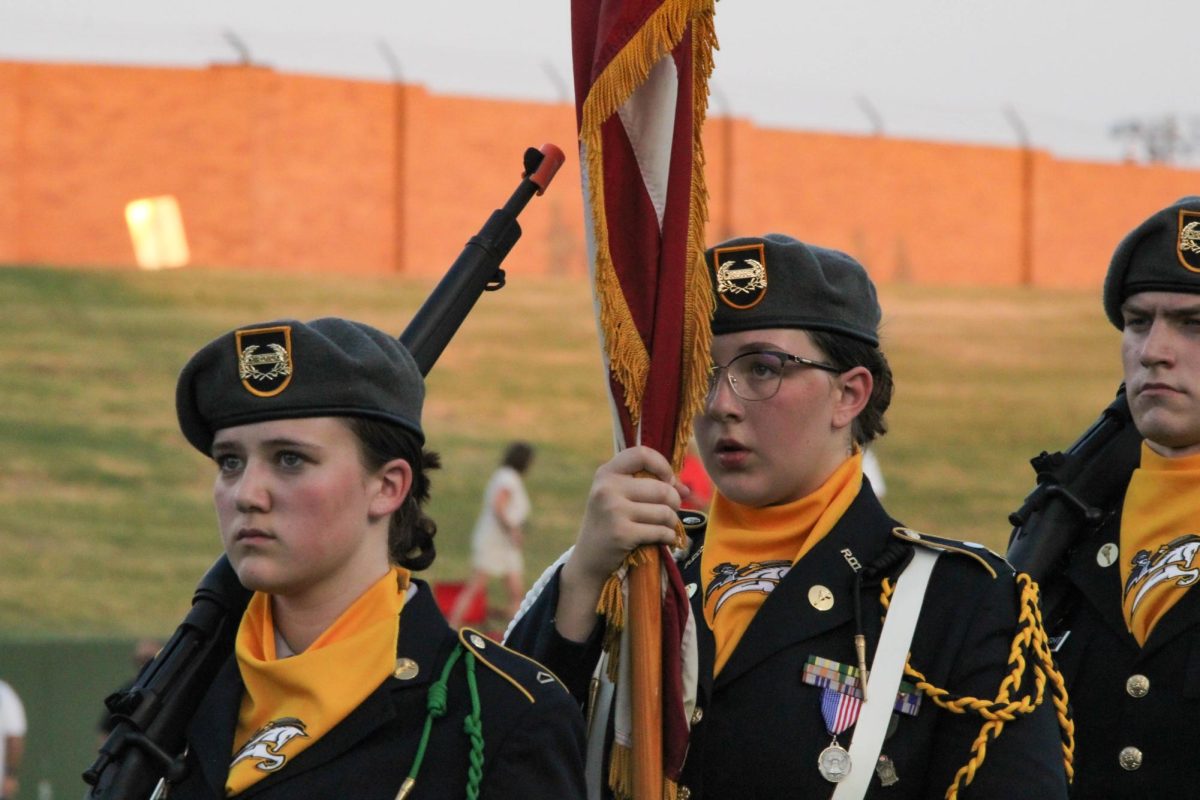There is a lot that goes into a high school experience. While part of high school is about the grades, another aspect is about having fun and fulfilling experiences.
One of the key ways students do this is by taking electives that pique their interests.
Program directors have noticed a dip in participation the last few years, and this year is no different.
According to choir teachers Melanie Coons and Ayrian Norman, their program has to battle retaining students.
“Retention is tough because of the CEC and endorsements,” Norman said. “Once they get here we know there are things that students feel they have to do to graduate with any certifications. I don’t feel comfortable telling a kid they need to drop cosmetology, which is what they want to do for the rest of their life, so that they can be in my choir class. I don’t feel like that’s appropriate.”
Students choose an endorsement before they get to high school, which can affect their elective schedule over their four-year high school tenure.
“We always try to tell kids in ninth grade that they can change their endorsement at any time, but at the end of the day, students are being made to feel like they are making career decisions at 14 years old,” Norman said. “We do not feel like that is overly fair to students who will get fewer-and-far-between opportunities when you become an adult to do things like this.”
JROTC instructor Major Robert Smith has noted the lack of interest by incoming freshmen.
“I’m not sure why the numbers are lower,” Smith said. “We went to the schools and did the numbers like last year, it just came out that way. Sometimes you just have a low year.”
While the lackluster turnout with freshmen was disappointing, the class did see a stronger turnout in older students.
“We had better recruiting and better freshmen numbers the last three years prior,” Smith said. “When we have good numbers for freshmen, a lot of them will stay in the program, so we had better numbers in our second, third and fourth-year students.”
Theatre director Zachary Jackson believes that the lower numbers of enrollment are rooted in changes at the middle school level.
“I was at McNiel for six or seven years, and during that time they changed our classes from eight periods to seven periods, which took an elective away,” Jackson said. “So doing that to our students at that young age gives them less opportunity to take electives like theater, choir, orchestra, art, all that kind of stuff. So then when they get to high school, sure we go to eight periods, but they’ve already gone away from that interest because they didn’t get the opportunity to.”
Despite the struggles, Coons is hopeful that the promised online classes will help balance out students schedules.
“Our hope is when the new schools open, and all these schedules are redone, that a lot of classes are offered online, that’s going to open up opportunities for kids to be in a class,” Coons said. “If they have to take choir, and there’s an AP English class at the same time, they can take that AP English class as an online course, and then not lose the choir. We’re hoping this new schedule that we’ve been told is going to exist with online courses will help us with retention.”
Smith remains hopeful that between rallying efforts by current students and the finishing of the new schools, enrollment will improve.
“When we have the new schools, more people will be interested,” Smith said. “We’re making it our improvement project this year to increase freshmen enrollment for future years. So we’ll get some of our kids this year to go down to McNiel in addition to when they go down to the CEC. We’re hoping the kids will come up with other ideas, maybe something like posters and other things.”
Even though new schools are being constructed, that doesn’t necessarily mean they will be the magic fix.
“I don’t think the new schools will help numbers,” Jackson said. “I think it will either be the same or less because, even though each high school will now have more students, there are also going to be new opportunities for the schools.”
There’s also a fear that due to the lower numbers, directors won’t get any additional help with managing their departments. Jackson doesn’t know what his future holds, but is concerned about extra help.
“I may be still by myself, and I know that is going to be harder on me and harder on the other teachers at the other high schools,” Jackson said.
Jackson plans on doing everything in his power to help future theater numbers.
“One of the things that we’re doing this year, and we did it last year, but for lip sync this year we’ve invited not just the McNiel eighth graders but also the other middle school eighth graders,” Jackson said. “Since our schools are combining next year, I don’t know what kind of group of kids I’m going to get, I’m going to get a mix of different people. We thought it would be a good idea to give them a little preview, get them accustomed to it, so it’s open to the entire district.
“One thing that me and the other high school theater teachers are planning on doing is going on tours to elementary schools, and presenting small little plays that our students created.”


